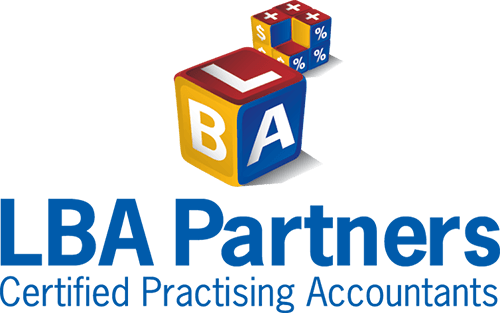P r a c t i c e U p d a t e
March 2012
Small Business benchmarks for 2012
Editor: The ATO collects a vast amount of information, and in the last few years they have started using that information to work out what 'normal' small business taxpayers should be including in income and claiming as deductible expenses, depending on their industry.
If a taxpayer falls outside the 'normal' benchmark for their industry, meaning that normally their income does not appear high enough for the expenses they have incurred, they may find themselves on the receiving end of some unwanted ATO attention...
The problem for most taxpayers in this position is that they don't have the records to be able to prove that the Tax Office is incorrect, so the Tax Office is able to lift their income to the benchmark. That can be many thousands of dollars.
The ATO has advised that it has upgraded its existing benchmarks with recent data.
It has also added two new activity statement ratios (i.e., where they compare information on BASs etc):
- 'GST-free sales' to 'total sales' for six industries. The ratio shows the percentage of GST-free sales to the total sales reported by businesses on their activity statement; and
- 'Non-capital purchases' to 'total sales' for 86 industries. This ratio shows the percentage of non-capital purchases, to the amount of total sales reported on their activity statement.
There are currently 103 types of small businesses that have been benchmarked. The following is a list of the business industry categories:
- Accommodation and food services (note that this used to be just "Food Services", so many little B&Bs and motels could soon expect to be under the gun);
- Building and construction trade services;
- Education, training, recreation and support services;
- Health care and personal services;
- Manufacturing;
- Professional, scientific and technical services;
- Retail trade;
- Transport, postal and warehousing;
- Other services (such as automotive services and repairers, panel beating and video and other electronic media rental and hiring).
Editor: If you would like to discuss whether your business has been benchmarked and what that means for you, please contact our office.
Government to give Tax Office the power to withhold refunds
In a recent case, the Full Federal Court held that the Tax Office had no legal basis for holding on to a GST refund while verifying that the amount claimed was correct.
Editor: Some clients may be aware that the ATO has from time to time withheld large GST and other refunds while they checked to make sure that there was no fraudulent activity.
The problem for small businesses is that often these refunds can be crucial to their cash flow and can actually threaten their viability.
However, as a result of the decision, the Government has announced that it will introduce legislation to allow the Commissioner of Taxation to hold refunds for verification prior to payment.
However, the proposed legislation has supposedly been drafted to strike an appropriate balance between a taxpayer's right to a prompt refund and the Commissioner's responsibilities.
Certain threshold tests will need to be met before the discretion can be exercised.
The discretion would apply in relation to refunds and payments arising under all taxation laws that the Commissioner administers.
Editor: Unfortunately we will have to wait and see how this pans out in reality. Nonetheless, if any client is experiencing difficulties with refunds please contact our office.
Building deductions
Editor: Broadly, the Tax Act allows taxpayers to claim deductions for certain construction expenditure on income-producing capital works – this is often referred to as the 'building write-off', and is typically 2.5% of the relevant expenditure every year.
Interestingly, it is not just the taxpayer that incurred the original construction expenditure that can claim a deduction, and it can also apply to tenants that incur construction expenditure.
If a taxpayer leases all or part of the 'construction expenditure area', and the expenditure was incurred by an earlier lessee, the construction expenditure area must have been continuously leased since the construction was completed by the lessee who incurred the expenditure or an assignee of that lessee's lease.
Note that if the previous lease is terminated, rather than 'assigned', and a new lease is entered into, the new lessee will not be able to claim the deductions.
Tax Tip: If you're taking over a lease from a former tenant, remember to question them about any improvements they may have made to the building so you can claim the building write-off.
Related parties and SMSFs
Editor: The ATO recently provided guidance for related parties of self-managed superannuation funds (SMSFs) providing building services to, and acquiring materials on behalf of, the SMSF.
Trustees of SMSFs are generally prohibited, with some exceptions, from 'acquiring assets' from a related party of the SMSF.
Consequently, if a related party builder acquires materials in their own right which are then supplied to the SMSF, this would result in the trustees breaching the superannuation legislation.
Alternatively, where a related party only acts as an agent, arranging for the acquisition of building materials on behalf of the SMSF from an unrelated vendor, and the related party at no times holds legal title to the building materials, the SMSF trustees have acquired the materials from that vendor, not the related party, and no breach should apply for such acquisitions.
Editor: Very strict rules apply to the trustees of SMSFs, regarding what they can and can't do, particularly when it comes to dealings with related parties. If you are at all unsure about these issues, please contact our office for assistance.
Retail premiums paid to shareholders
Editor: The ATO has released a Ruling about the taxation of 'retail premiums' paid to shareholders of companies where they are offered share entitlements but they don't, or can't, take them up.
According to the ATO, a retail premium paid to a 'non participating shareholder' is:
- a dividend that is included in assessable income, or alternatively is simply ordinary income if it is not a dividend (unless they are a non-resident shareholder, in which case it is non-assessable non-exempt income, but subject to withholding tax); and
- an unfrankable distribution sourced from a company's share capital account.
Also, any capital gain a non participating shareholder makes from receipt of the retail premium is reduced to the extent that the amount is otherwise included in their assessable income.
Editor: This is a contentious Ruling, and may also contradict the material that these companies often provide, which detail the expected tax effects of such transactions.
Please Note: Many of the comments in this publication are general in nature and anyone intending to apply the information to practical circumstances should seek professional advice to independently verify their interpretation and the information's applicability to their particular circumstances.
Management Consulting
We have the know-how and experience to offer advice that helps you run your business more effectively.
Self-Managed Superannuation Funds
At LBA Partners we provide the professional advice you need to manage your own fund and greatly simplify the process for you.



